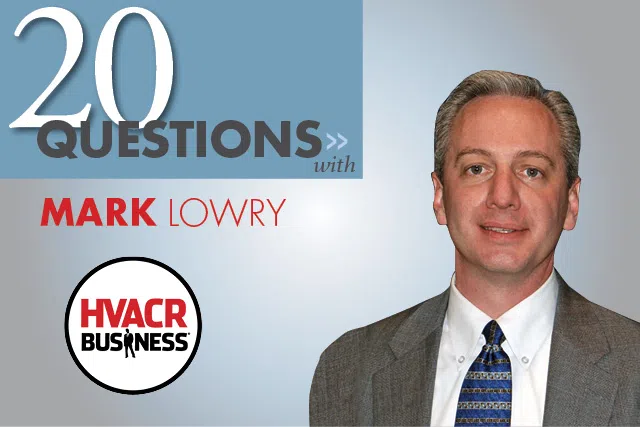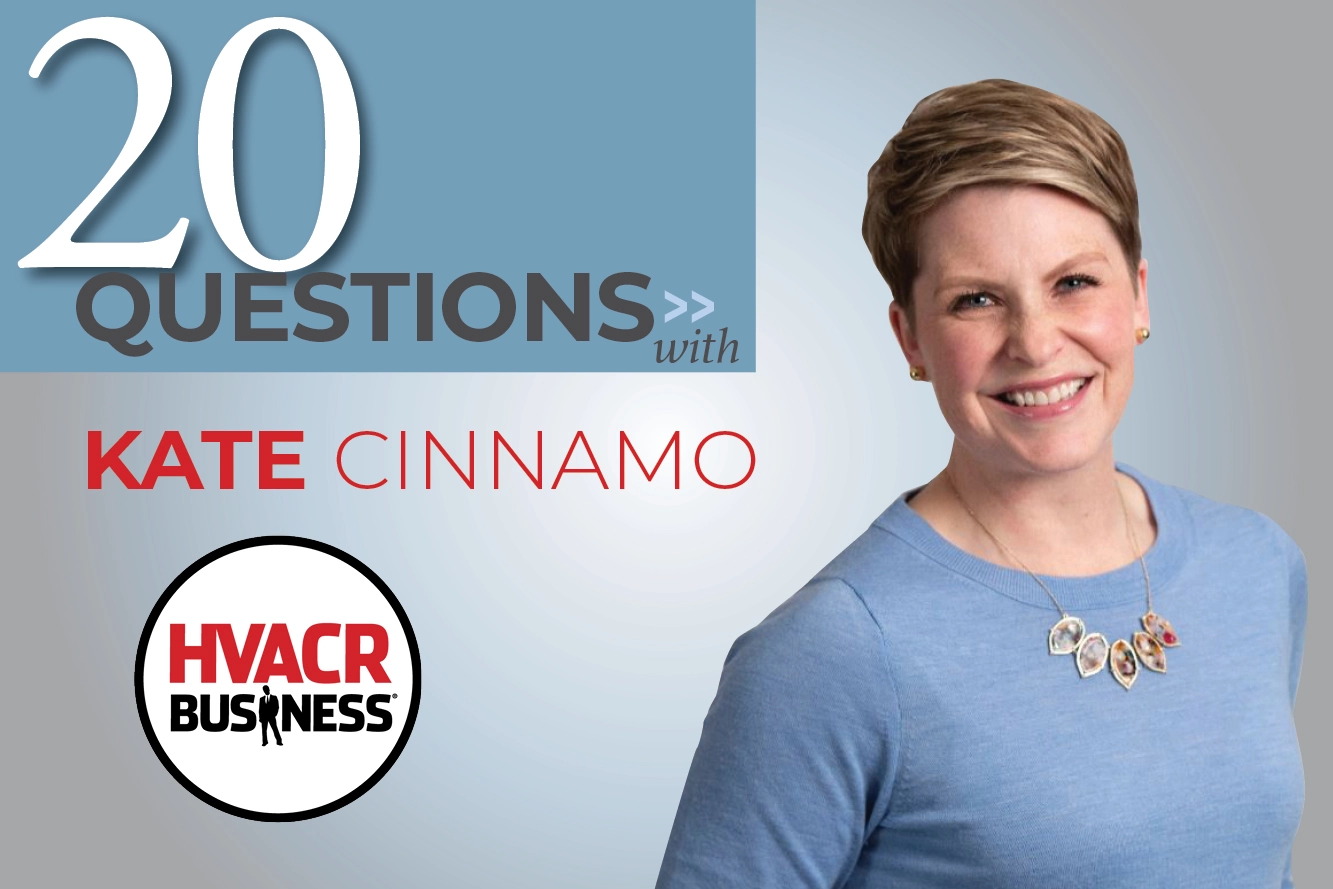HVACR Business Publisher Terry Tanker met with Mark Lowry Executive Vice President of The Refrigeration Service Engineers Society in Washington D.C. The two discussed improving service technician training, certification, and competence, and what it means for contracting owner’s bottom lines and the industry as a whole.
1. When did you become executive VP of RSES?
In 2006. However, I’ve been with RSES since 1993 in many different roles.
2. It’s unusual, to hold a position for that long.
How have you done it?
It’s hard to believe that much time has gone by. But our staff and members have made it easy to keep trying to fulfill the mission of the organization.
3. Would you explain the mission of RSES?
“To provide opportunities for enhanced technical competence by offering comprehensive, cutting-edge education and certification to our members and the HVACR industry. To advance the professionalism and proficiency of our industry through alliances with other HVACR associations.”
4. What originally attracted you to RSES?
I was recruited. The group seemed very dynamic and I knew quickly I wanted to be part of what they were doing.
5. How has the organization changed under your leadership?
We’ve become leaner, due to dedicated people willing to do more with less. We’ve become much more technology-driven and offer significant value to members through online channels.
6. What have been some of the significant milestones during your tenure?
When I started, the Internet was just becoming ubiquitous; we didn’t have voice mail or e-mail. Our systems are first rate now. Delivering technical content via eLearning courses and webinars has been a large milestone.
7. What are some of the unique challenges of running an association?
All corporations depend on their boards of directors for strategic vision. Associations often also rely on volunteers to accomplish much of the work produced for the organization. A lot of resources are dedicated to supporting those activities, as a result you have a lot of opinions about how work should be carried out.
8. How many are on the RSES staff?
17 full time.
9. What challenges face our industry regarding improving the knowledge level of the technical workforce?
Many tech’s lack an incentive to acquire the knowledge and skills necessary to be a top performer. Often there is a feeling that personal investment in improving is not a priority unless the employer covers the cost and allows it to take place during normal working hours.
10. So what is RSES doing about that?
For those employers who do encourage their technicians to pursue continuous education and personal development, we’ve expanded our contractor corporate membership program to make training more accessible.
11. What can be done to change more employers’ attitudes about training?
You’ve probably heard this...A contractor may say, “What if I invest in the training and employees, leave?” Our response has always been – “What happens if you don’t train them, and they stay?” The successful contractors understand that they need to make an investment. The challenge is to convince more of them to get on board.
12. Without employer mandates how do we
change technicians’ attitudes?
Perhaps even better than mandates are employer incentives. Pay increases tied to attending training and/or attaining certifications can be very powerful.
13. Do you think this will become regulated and technician training will be mandatory?
Honestly, I certainly hope so. I am not a big fan of regulation. But in 20+ years, the only time significant numbers of technicians pursued training and certification was when the EPA mandated it for handling CFCs and HCFCs. The elite of the workforce don’t need that kind of inspiration – they want to know as much as possible so that they can be as effective as possible on the job. But beyond that top layer, I just don’t think we’re going to establish a higher level of competency across the board
without some legal requirement.
14. Is there any support for this on Capitol Hill?
Not officially that I’m aware of. Maybe at the State level, but it’s inconsistent.
15. How is RSES making training more affordable for employers and technicians?
We’re continually adding to our online portfolio – elearning, objective based courses; monthly live technical webinars; Hydrocarbon Refrigerant Certificate Training program, continuing education credit for technical articles in our monthly magazine – all these augment an already robust archive of technical papers and articles available online.
16. What don’t people know about RSES training?
Just how many ways it can be made available. Wholesalers use our curriculum in their prep classes for NATE tests and monthly training, apprenticeship programs use our courses in state-recognized programs, and schools use standard and customized courses regularly.
17. What’s the largest management challenge you face this coming year?
Like any organization growing our revenues. When the primary products you sell are voluntary education, training and certification to a target audience that largely has to be convinced of their value, its challenging.
18. How are you positioning RSES for a changing landscape in future years?
We are building our foundation to be a technician’s primary provider of career development resources. From students learning the trade, to seasoned veterans seeking knowledge of the latest developments, we want to provide a pathway to support technicians with superior educational products, certification preparation, and peer networking opportunities.
19. How is RSES marketing trying to change attitudes about training?
We try to demonstrate to employers that every dollar invested in education and training can grow their bottom line. We try to convince employees that HVACR installation and service isn’t just a job, it’s a lucrative, rewarding career.
20. What do you want readers of this column
to take away today?
That creating a culture rewarding lifelong learning amongst your employees is one of the surest ways to achieve your productivity and profitability goals. And that there are industry resources — like RSES that can partner
with you.
Terry has over 23 years of experience in the advertising and publishing industries. He began his career with a business-to-business advertising agency. Prior to forming Hutchinson Tanker Ltd. and HVACR Business in January 2006, he spent 20 years with large national publishing and media firm where he was the publisher of several titles in the mechanical systems marketplace.
In addition to his experience in advertising and publishing, Terry has worked closely with numerous industry-related associations over the years including AHRI, AMCA, and ABMA. He has also served on the Board of Directors for the American Boiler Manufactures Association (ABMA) and as chairman, for both the Associates Committee and the Marketing Communications Committee of ABMA.






